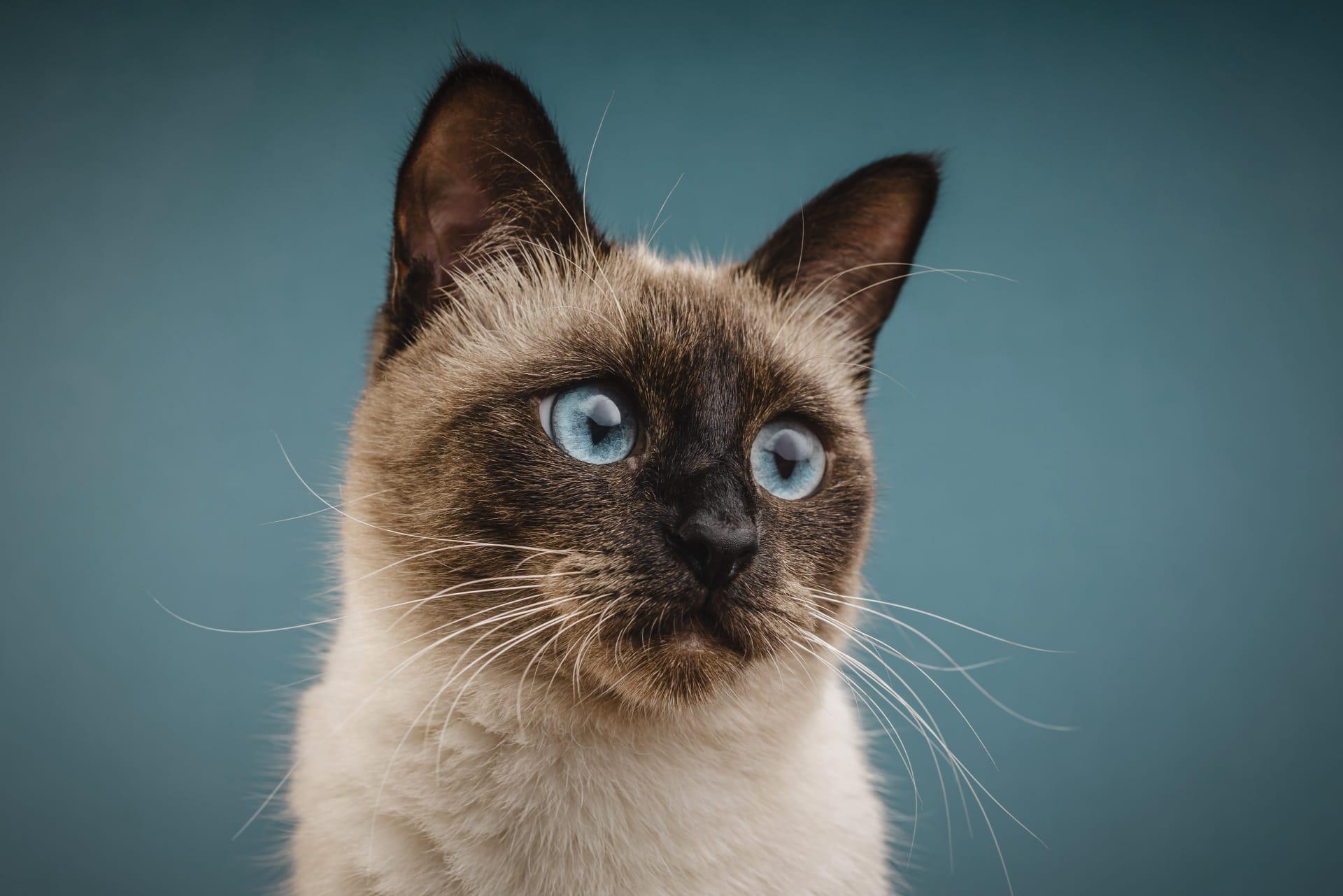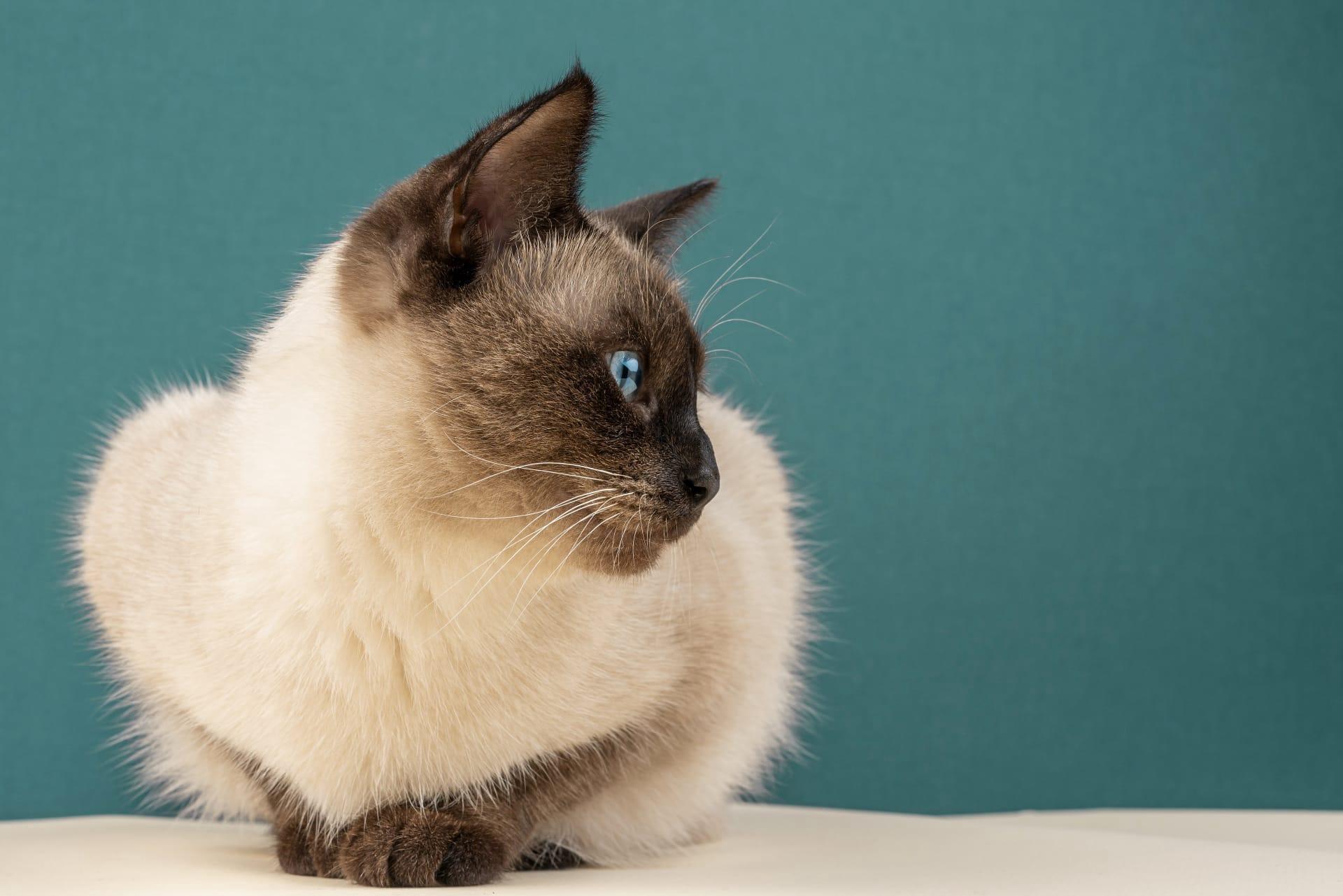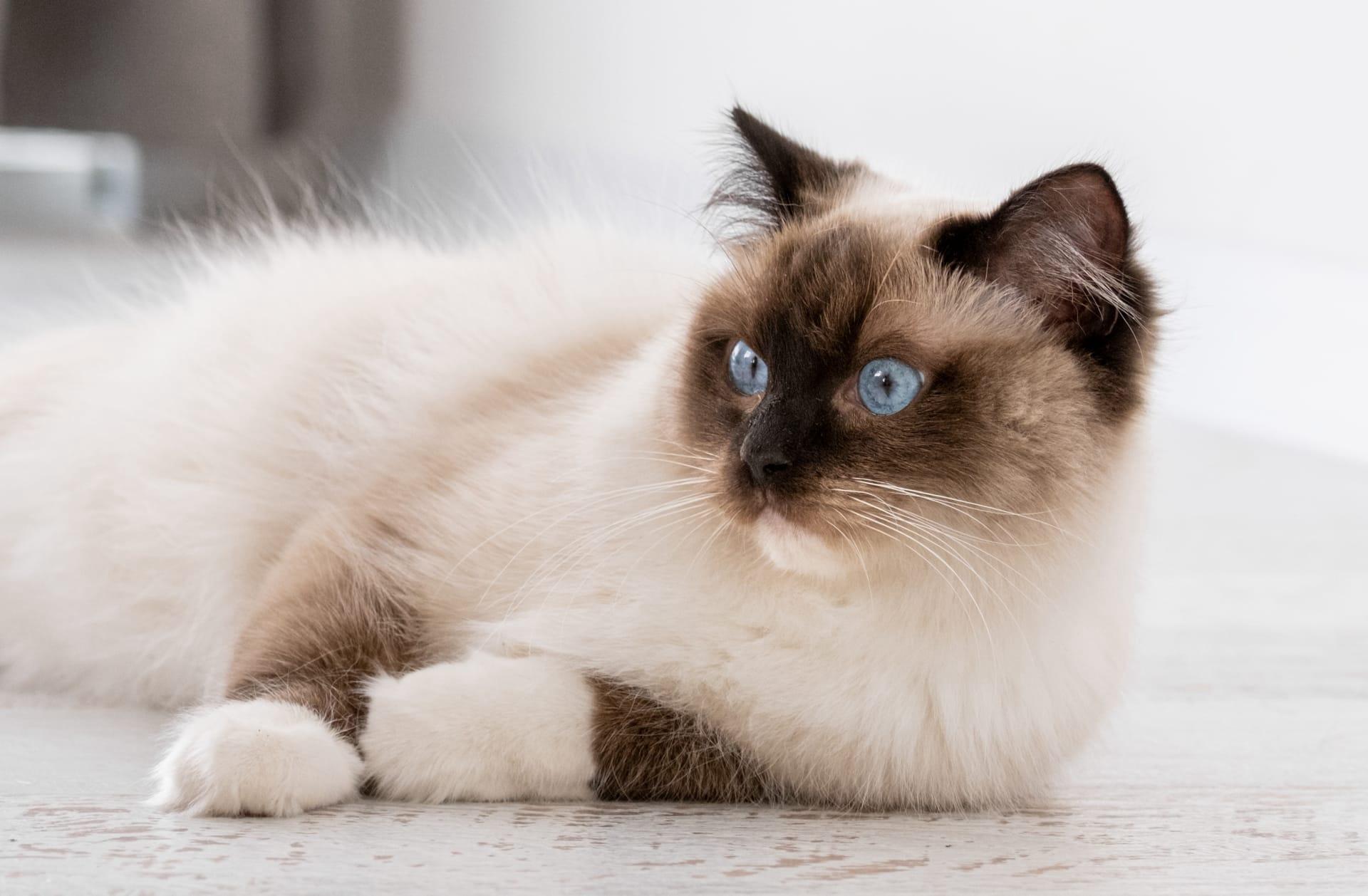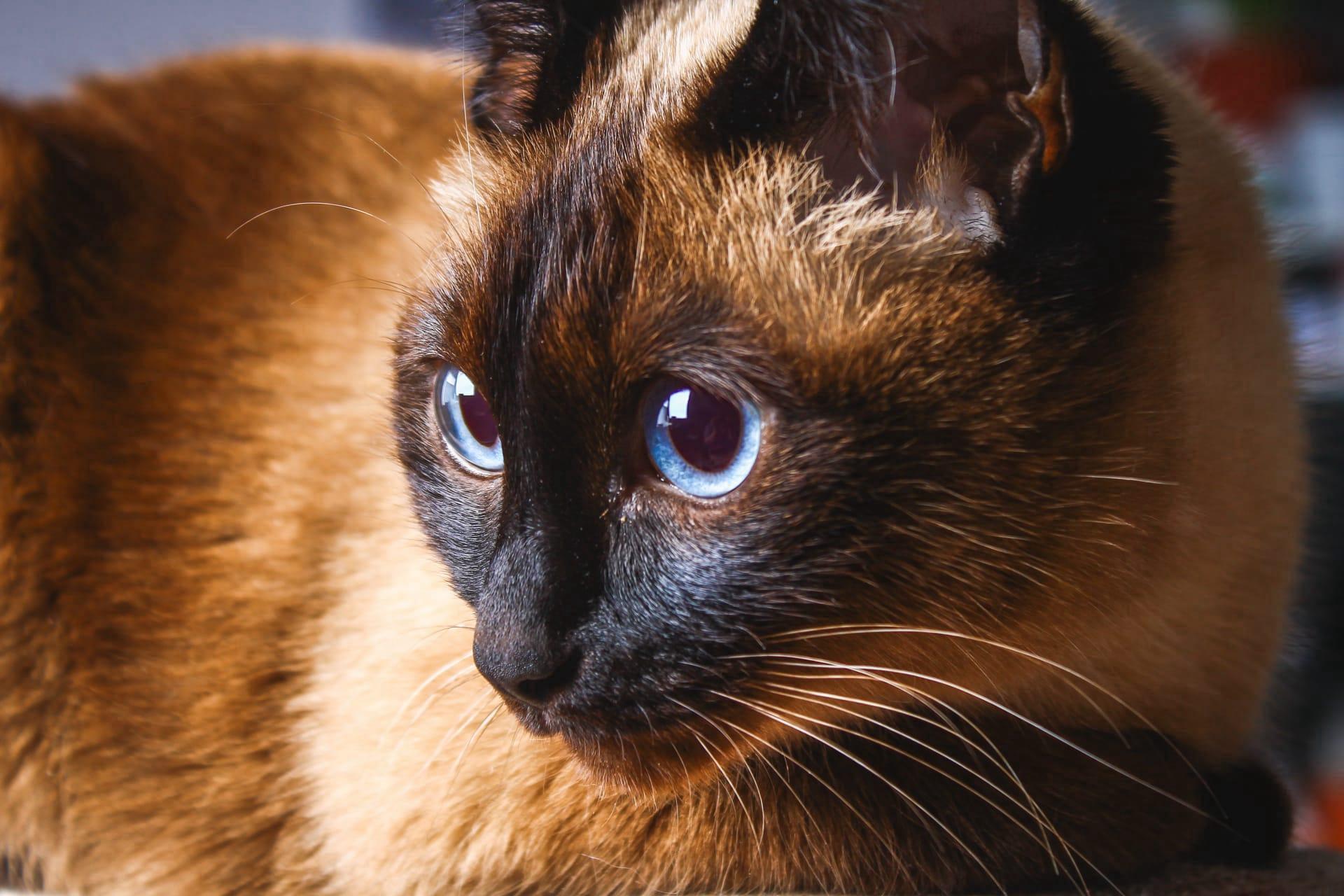Thai Cat Characteristics
- Home /
- Mini Encyclopedia /
- Animal /
- Thai Cat Characteristics
1
The Thai Cat, also known as the traditional Siamese, is a striking breed with a medium-sized, lithe body, weighing between 6 to 12 pounds (2.7 to 5.4 kg). They are characterized by their sleek, muscular build and a distinctive coat that features a light-colored body with darker extremities, known as "points," which include the ears, face, paws, and tail. The lifespan of a Thai Cat typically ranges from 15 to 20 years, testament to their robust health and vitality. Their captivating blue almond-shaped eyes not only add to their exotic appearance but also to their expressive nature.
The most remarkable organ of the Thai Cat is its vocal cords. Thai Cats are known for their vocal range and conversational abilities, often engaging in lengthy "talks" with their human companions. This breed uses its vocal cords to express a variety of needs and emotions, from hunger to affection, making them one of the most vocal cat breeds. Their meows can vary significantly in tone, volume, and pitch, which allows them to communicate more effectively than many other breeds, creating a unique bond between the cat and its owner.

2
Question: What is the most common health issue faced by Thai Cats?
Answer: Thai Cats are generally healthy, but they can be prone to certain genetic health conditions, including Amyloidosis and Progressive Retinal Atrophy (PRA). Amyloidosis is a disease that occurs when a type of protein called amyloid is deposited in body organs, primarily the liver in Thai Cats, leading to organ dysfunction. Progressive Retinal Atrophy is a genetic condition that causes the photoreceptor cells in the eyes to degenerate gradually, potentially leading to blindness. Early detection through regular veterinary check-ups can manage these conditions, ensuring a Thai Cat maintains a quality life.

3
Thai Cats possess a high level of agility and athleticism, making them incredibly active and playful. They enjoy a variety of physical activities, from chasing toys to climbing high perches. Their slender bodies allow them to maneuver through tight spaces and jump great heights with ease. Regular playtime sessions are essential for maintaining their physical health and mental well-being.
When it comes to feeding, Thai Cats have a healthy appetite and do best on a balanced diet rich in protein. They can be more prone to obesity if not monitored, so it's important to regulate their food intake and ensure they get enough exercise. High-quality dry or wet food, combined with occasional treats, can satisfy their nutritional needs and keep them in optimal health.

4
Thai Cats thrive in a warm and sociable environment where they can interact with their human companions and explore their surroundings. They adapt well to indoor living, making them excellent companions for apartment dwellers. However, they also appreciate safe, enclosed outdoor spaces where they can bask in the sun and indulge their curiosity.
The reproductive traits of Thai Cats include their propensity for early maturity and a strong maternal instinct. Females can begin having litters at as young as six months of age, with the typical litter size ranging from four to six kittens. Thai Cats are known for their attentive and nurturing nature as parents, ensuring their offspring are well cared for and socialized from an early age.

5
Book: "The Royal Cats of Siam" - This fictional account, set in the 19th century, explores the legend of how Thai Cats were revered and kept by the royal families of Thailand. Through engaging storytelling, the author delves into the history, culture, and spiritual significance of these cats within Thai society, offering readers a captivating glimpse into their esteemed status.
Book: "Siamese Cats: A Complete Pet Owner's Guide" by Caroline Davis - Although not exclusively about Thai Cats, this book offers comprehensive coverage of the Siamese breed, from which the Thai Cat descends. Published in the early 2000s in the United States, Davis provides detailed information on care, health issues, diet, and behavior, making it a valuable resource for current and prospective Thai Cat owners looking to understand and connect with their pets on a deeper level.